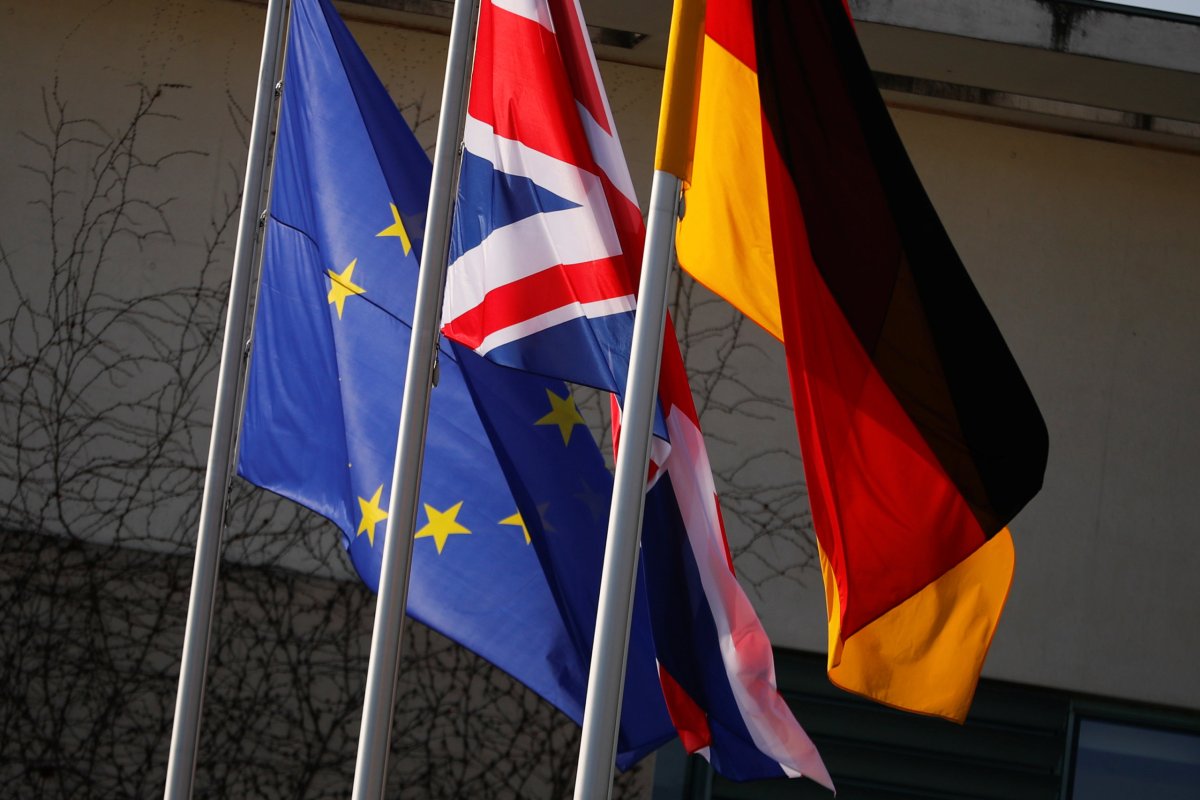By Michael Nienaber and Rene Wagner
Britain is on course to lose its status as one of Germany’s top ten trading partners this year for the first time since 1950, as Brexit-related trade barriers drive firms in Europe’s largest economy to look for business elsewhere.
The UK left the European Union’s single market at the end of 2020, following more than four years of wrangling over the terms of its divorce during which corporate Germany had already begun to rein in ties with Britain.
In the first six months of this year, German imports from Britain sank nearly 11% year-on-year to 16.1 billion euros ($19 billion), Federal Statistics Office data reviewed by Reuters showed.
While German exports to Britain rose 2.6% to 32.1 billion euros, that could not prevent a decline in bilateral trade, by 2.3% to 48.2 billion euros – pushing Britain down to 11th spot from ninth, and from fifth before it voted to leave the EU in 2016.
A December 2020 survey of Germany’s BGA trade association showed one in five companies were reorganizing supply chains to swap out British suppliers for others in the EU.
That trend was becoming more marked, though British businesses were even worse off, said Michael Schmidt, President of the British Chamber of Commerce in Germany, making any turnaround before the end of this year unlikely.
“More and more small and medium-sized companies are ceasing to trade (in Britain) because of these (Brexit-related) hurdles,” Schmidt told Reuters.
The sharp first-half decline was also driven by pull-forward effects before the new hurdles, such as customs controls, kicked in in January.
“Many companies anticipated the problems… so they decided to pull forward imports by increasing stocks,” he said.
While this effect pushed up bilateral trade in the fourth quarter, it cut demand early this year, while problems with the new customs checks also complicated trade from January onwards.
A data breakdown showed German imports of British agricultural products tumbled by more than 80% in the first six months while imports of pharmaceutical products nearly halved.
“Many small companies simply can’t afford the extra burden of keeping up to date and complying with all the kicked-in customs rules such as health certificates for cheese and other fresh products,” Schmidt said.
But the new trade realities had harmed British companies even more than German ones, which were more used to dealing with different customs regimes around the world as many had been exporting to various non-European countries for decades.
“In Britain, the picture is different,” Schmidt said, adding that many small firms there had exported mainly to the EU so had to start from scratch when confronted with new customs controls.
“For many small British firms, Brexit meant losing access to their most important export market… It’s like shooting yourself in the foot. And this explains why German imports from Britain are in free-fall now.”
He voiced hope that some of the decline might be temporary. “Companies are normally always in a good position to adapt quickly – but this needs time.”
Reuters





























